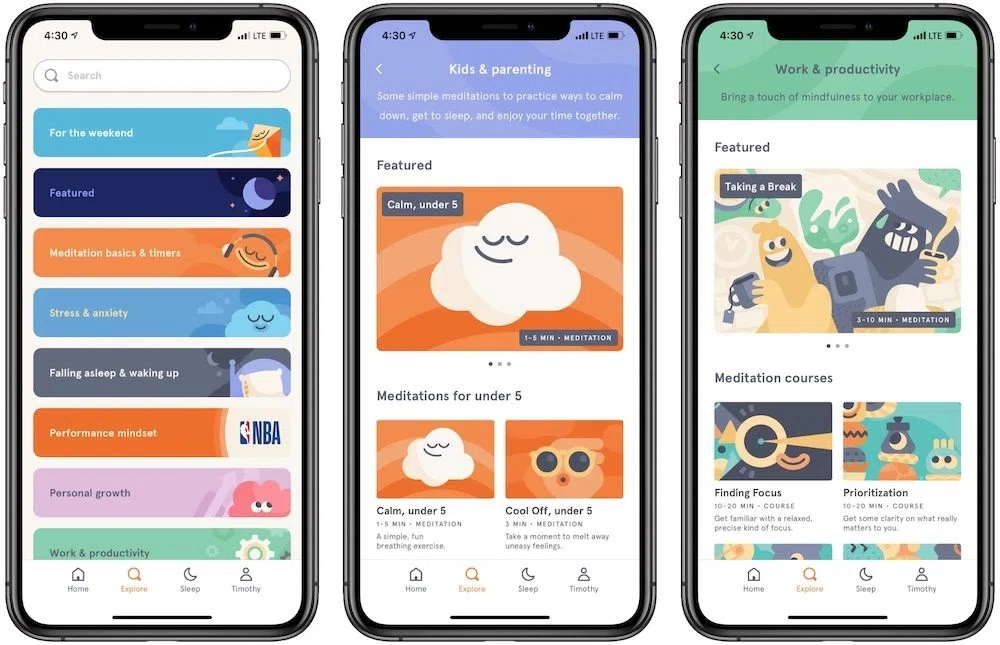Mental health apps have gained significant attention in recent years as a viable option for individuals seeking support for their mental well-being. With the rise of technology, these applications offer a range of tools and resources designed to help users manage their mental health effectively. This article explores various aspects of mental health apps and their proven effectiveness.
Accessibility and Convenience
One of the primary advantages of mental health apps is their accessibility. Users can access these applications anytime and anywhere, making it easier for individuals with busy schedules to prioritize their mental health. This convenience is particularly beneficial for those who may feel uncomfortable seeking help in traditional settings, such as therapy offices.
Moreover, mental health apps often provide a variety of resources, including guided meditations, mood tracking, and cognitive behavioral therapy (CBT) exercises. This range of tools allows users to tailor their mental health journey to their specific needs, promoting a sense of autonomy and empowerment.
Evidence-Based Approaches
Many mental health apps are grounded in evidence-based practices, ensuring that users receive effective support. For instance, apps that incorporate CBT techniques have been shown to reduce symptoms of anxiety and depression. Research indicates that these methods can be just as effective as traditional therapy for some individuals.
Additionally, the integration of mindfulness practices in mental health apps has gained popularity. Studies suggest that mindfulness can lead to improved emotional regulation and reduced stress levels. By utilizing these evidence-based approaches, mental health apps can provide users with effective strategies for managing their mental health.
Community Support and Engagement
Many mental health apps foster a sense of community among users, allowing individuals to connect with others who share similar experiences. This social support can be invaluable for those struggling with mental health issues, as it helps reduce feelings of isolation and loneliness.
Features such as forums, chat rooms, and group challenges encourage users to engage with one another, share their journeys, and offer support. This sense of belonging can enhance the overall effectiveness of mental health apps, as users feel more connected and motivated to pursue their mental health goals.
Personalization and Customization
Personalization is a key feature of many mental health apps, allowing users to customize their experience based on their unique needs and preferences. This can include setting personal goals, selecting specific exercises, or tracking mood patterns over time.
By tailoring the app experience, users are more likely to remain engaged and committed to their mental health journey. Customization also enables individuals to focus on areas they find most challenging, whether it be anxiety management, stress reduction, or improving self-esteem.
Cost-Effectiveness
Compared to traditional therapy, mental health apps often provide a more cost-effective solution for individuals seeking support. Many apps offer free versions or low-cost subscriptions, making mental health resources accessible to a broader audience.
This affordability can be particularly beneficial for those who may not have insurance coverage for mental health services or who are hesitant to invest in therapy. By providing affordable options, mental health apps can help bridge the gap for individuals seeking assistance.
Future Trends in Mental Health Apps
The future of mental health apps looks promising, with ongoing advancements in technology and research. Innovations such as artificial intelligence (AI) and machine learning are expected to enhance the personalization and effectiveness of these applications.
As mental health awareness continues to grow, we can anticipate an increase in the development of apps that cater to specific populations, such as children, adolescents, and marginalized communities. This evolution will likely lead to even more effective tools for managing mental health, making it an exciting area to watch.
| Aspect | Description |
|---|---|
| Introduction | Mental health apps have gained popularity as tools for managing mental health issues, providing users with resources and support. |
| Types of Apps | There are various types of mental health apps, including mood trackers, meditation guides, cognitive behavioral therapy (CBT) tools, and support communities. |
| Effectiveness | Research indicates that mental health apps can significantly reduce symptoms of anxiety and depression, improve emotional well-being, and enhance coping strategies. |
| Accessibility | These apps provide accessible mental health support, allowing users to engage with resources anytime and anywhere, which is particularly beneficial for those in remote areas. |
| Personalization | Many apps offer personalized experiences, adapting to user preferences and needs, which can lead to higher engagement and better outcomes. |
| Limitations | While effective, mental health apps are not a substitute for professional therapy. Users with severe mental health issues should seek professional help. |
| Future Trends | The future of mental health apps includes advancements in AI, increased integration with healthcare systems, and a focus on user privacy and data security. |



